Education

Ruth R. Wisse
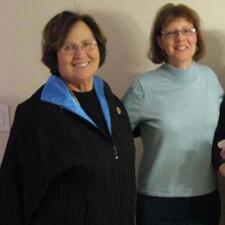
Judy Wolf
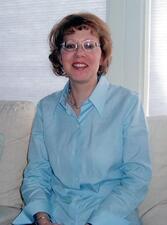
Sue Wolf-Fordham
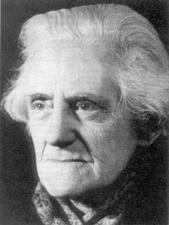
Nelly Wolffheim
Nelly Wolffheim spent her career developing and teaching a kindergarten curriculum based around Sigmund Freud’s psychoanalytic framework. She taught this curriculum, which encouraged children to express their sexual desires, to Jewish women teachers in Berlin. After escaping Germany for England in 1939, Wolffheim struggled to continue her research but began publishing her work again after the war.
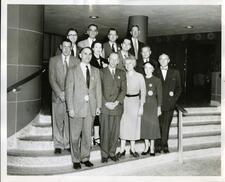
Theresa Wolfson
Theresa Wolfson, economist and educator, taught at Brooklyn College from 1929 until her retirement in 1967. A prolific writer, she published in the fields of labor economics and industrial relations. As early as 1916, Wolfson studied barriers to the advancement of women in the workplace and the unequal treatment of women within trade unions.
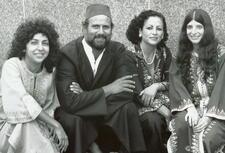
Women and Sephardic Music
Ladino or Judeo-Spanish Sephardic songs are primarily a women’s repertoire. The two main traditions are that of northern Morocco and the Eastern Mediterranean, primarily today’s Turkey, Greece, the Balkans.
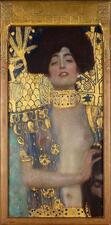
Women Warriors
In the Hebrew Bible and ancient Jewish literature, most warriors are men. However, a few women go to war or kill: Deborah, Jael, the unnamed woman of Thebez, and Judith.
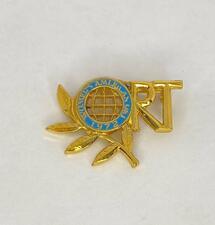
Women's American ORT
Five years after the American chapter of the Organization for Rehabilitation through Training (ORT) was founded in 1922, a women’s auxiliary group (WAO) was created. WAO aided displaced Europeans and focused on creating vocational schools across the world. In the later twentieth century, WAO expanded to help create medical services for students and provide recreational facilities, among other programs.
Women's Studies in Israel
In the 1980s and 1990s, Women and Gender Studies programs were established at the five Israeli Universities, emerging from the “New Women’s Liberation” movement of the 1970s. The programs faced many challenges, especially a lack of university support, but today are popular with students and faculty. Women’s Studies programs also developed at Israeli colleges, and the Israeli Association for Feminist and gender Studies is a national organization of feminist scholars.
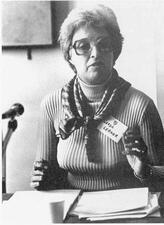
Women's Studies in the United States
Jewish women were instrumental in creating women’s studies as an academic discipline and contributed significantly to its growth and evolution. They have been critical not only as political activists, administrators, and editors of the key women’s studies journals, but also as prominent thinkers in the field’s intellectual debates.
Working Women's Education in the United States
Although young immigrant Jewish women had always been especially motivated to become educated public-school students, the workers’ education movement in the 1910s and 1920s tried to teach workers specifically about social activism. Organizations such as the International Ladies Garment Workers Union created summer schools at colleges to educate women workers about trade unionism.
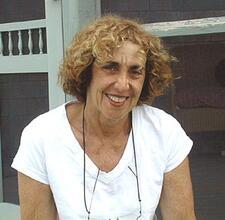
Judy Frieze Wright
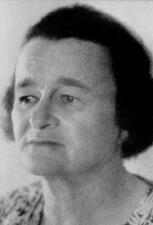
Sidonie Wronsky
Sidonie Wronsky was among the pioneers of professional social work and one of the early social work educators. She was a member of social work organizations, taught at German schools, and wrote prolifically on issues pertaining to social work, Judaism, and women. She continued her career in social work and education after her emigration to Palestine in 1933.
Frieda Wunderlich
Frieda Wunderlich was a prominent economist and politician in Germany, serving in local government, writing books and articles, and lecturing when she was forced from her positions as a woman and a Jew in 1933. After leaving Germany, she became the only woman faculty member of the New School for Social Research in New York and went on to be the first woman dean of an American graduate school in 1939. She achieved international recognition for her research and publications on labor and social policy, including women’s work.
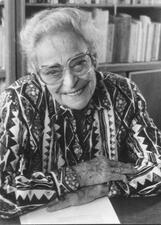
Leni Yahil
Leni Yahil was a German-born Israeli scholar and pioneer of Holocaust research in the decades following the Second World War. Working closely with Yad Vashem, she was among the first to emphasize Jewish primary sources, explore the importance of Jewish resistance, and document the Jewish experience in Northern Europe during the Holocaust.
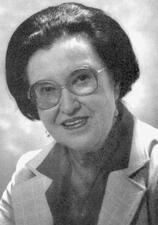
Rosalyn Yalow

Janet Yassen
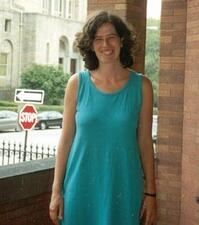
Rebecca Yenawine
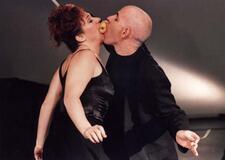
Rina Yerushalmi
Theater director and choreographer Rina Yerushalmi, one of Israel’s leading artists, is the founder and artistic director of the experimental Itim Theater Ensemble. Her unique theatrical language is based on visual images that present the classical texts in a new light, making them acute and relevant. Yerushalmi currently serves as Professor of Theater at Tel Aviv University.

Rebecca Young
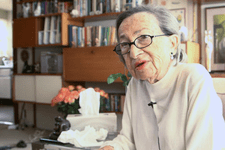
Vele Rabinowitz Zabludowsky
Vele Rabinowitz Zabludovsky was a transnational Yiddish and Hebrew teacher who dedicated her life’s work to teaching and the preservation of Yiddish culture and language. She spent over fifty years teaching Yiddish language and culture in Mexico.
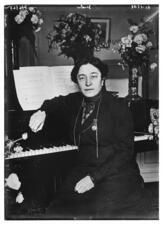
Fannie Bloomfield Zeisler
“She plays like a man” was a near-refrain in critiques of Fannie Bloomfield Zeisler, a brilliant pianist who emerged in the young, male-dominated American concert world of the 1880s. Zeisler exploded notions about women pianists with the precision, power, and expressiveness of her performances.
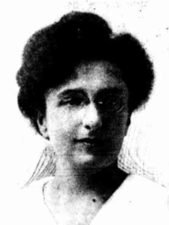
Zoe Benjamin
Zoe Benjamin was a twentieth-century Australian teacher who pioneered liberal ideas in early child education, child rearing, and child psychology. She wrote and lectured, both in person and over the radio, in depth on these topics. Her work gained such distinction that she was known overseas in England as well as Australia.
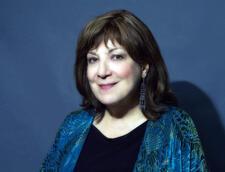
Avivah Gottlieb Zornberg
Avivah Gottlieb Zornberg is a highly regarded Torah scholar and author. Her complex interpretive lens is both contemporary, in drawing from literary sources, philosophy, and psychoanalytic theory, and very traditional, in reading the Bible through the lens of classic commentaries and rabbinic midrash.


